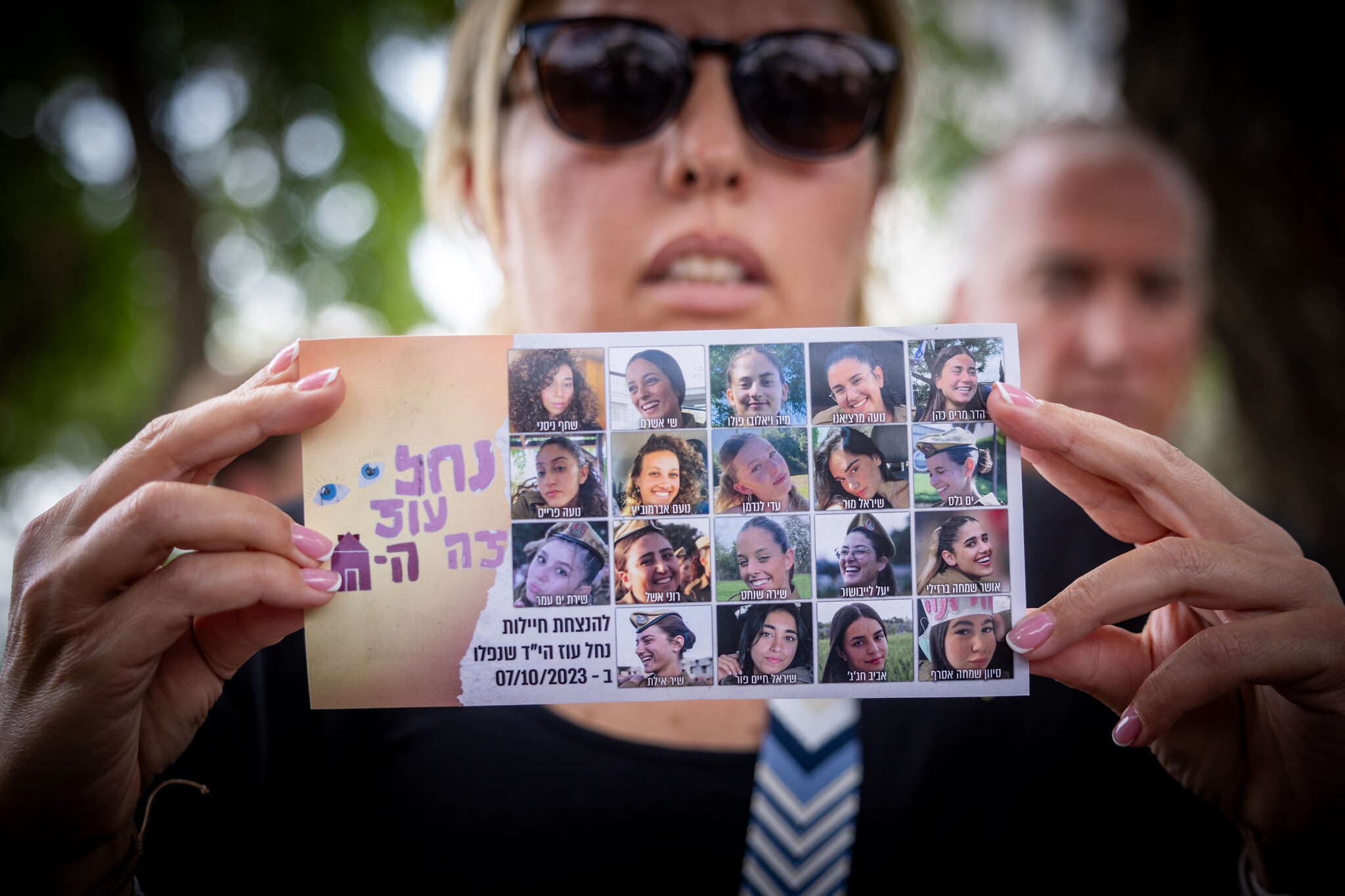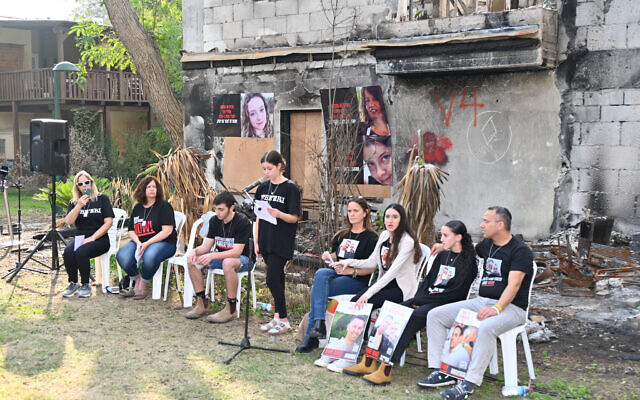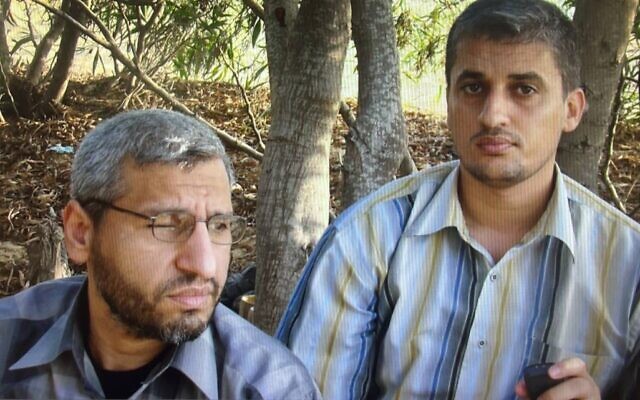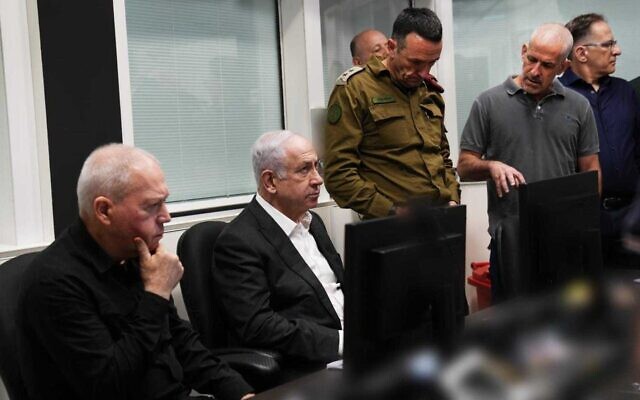



This Editor’s Note was sent out earlier Wednesday in ToI’s weekly update email to members of the Times of Israel Community. To receive these Editor’s Notes as they’re released, join the ToI Community here.
Senior officers in the IDF are sounding increasingly upbeat about the progress of the war — and the process of dismantling Hamas’s military capabilities.
The army doesn’t claim to have found, much less destroyed, all of Hamas’s tunnels. In the Rafah area, for instance, it envisages long work ahead to disable the underground infrastructure to the point where it could not be resurrected — partly because the routes through which Hamas smuggled in arms from Egypt extend deep into the densely populated city, where blowing up sections of tunnels is fraught with complexity. But gradually and inexorably, the tunnel threat is being reduced, especially as the IDF advances its kilometer-wide buffer zone inside Gaza all along the border with Israel.
It also doesn’t claim to have destroyed the Gaza terror groups’ entire rocket arsenals. Indeed, officials say Hamas retains the capacity not only to target communities close to the border but also to fire deep into central Israel — to the Jerusalem and Tel Aviv areas. But it believes Hamas is no longer easily able to smuggle in weaponry or components, and that its rocket-making factories are broadly now demolished.
And it doesn’t claim to have killed or neutralized the entire Hamas leadership — Yahya Sinwar is still scuttling below the surface — or the entire 30,000-strong Hamas army. Something in the order of half of those gunmen are dead, military officials believe. But most of the rest of them are no longer fighting; most of them are no longer in the tunnels; many if not most of them are now hiding out in designated humanitarian areas.
Despite such progress, however, 120 hostages remain held in Gaza — 116 of them since October 7. The security agencies work constantly to gather the intelligence that could facilitate further rescue operations, but such opportunities are few and far between.
Openly contradicting Prime Minister Benjamin Netanyahu’s assertion on Saturday night that the IDF had failed for months to apply sufficient military pressure on Hamas to force it into a hostage deal, IDF Chief of Staff Herzi Halevi said the next day that his troops have imposed “all the pressure required to create the best conditions for such an agreement, and this is how we have acted since the end of the previous agreement” in November.
Along with the other security leaders, and in common with Defense Minister Yoav Gallant, Halevi made clear his belief that a deal is the urgently necessary route for securing the freedom of as many hostages as possible as soon as possible.
As for formally ending the war as part of any such agreement, military officials privately profess relative comfort with that prospect — regarding Hamas to now be sufficiently degraded as to have essentially lost its organized military capabilities, and noting that Israel would simply resume “military operations” against Hamas targets as and when needed after a deal is carried out, without referring to such operations as anything akin to war.
Amid this kind of optimism, it is worth sounding a very loud warning against complacency. We all know only too well where assessments of Hamas’s intentions and abilities left Israel on October 7. Many of its leaders and gunmen may be dead, and its current capacities massively reduced, but its ideology, goals and core purpose are exactly what they were before October 7 — the destruction of Israel and the killing of Jews.
Military sources assert that there is a very low possibility of Hamas infiltration, but the terror government’s Gaza home territory has not magically receded into the geographical distance: As I saw last Monday, Shejaiyah, for instance, where eight tunnels, six of them approaching the border, have been uncovered in just the past few weeks, remains the same short dusty walk from Nahal Oz and Kfar Aza, with Sa’ad, Alumim and Be’eri just down the road.
And yet, when a group of us from The Times of Israel last Wednesday visited Kfar Aza and Be’eri, and heard the horror stories of Hamas’s October 7 slaughter and abduction from survivors, we were also told that there are still no cameras at the fence that separates those two kibbutzim from Gaza.
We heard, including from one member of the civil defense squads that fought Hamas that day against impossible odds — there were precisely 26 armed Israelis in Beeri for hours on October 7, facing over 300 Hamas terrorists — that those heroic security teams had been ordered much reduced in the three years before October 7, and been outrageously required to keep their scandalously few weapons and limited ammunition not with them in their homes but in the kibbutz armory, where terrorists were waiting for some of them on that terrible day.
Scandalously, we were also told, nine months after the catastrophic invasion that they so valiantly tried to resist, these civil defense squads have yet to be properly reconstituted, funded and armed.
**
Israeli security officials are increasingly confident that Sinwar’s prime co-conspirator Muhammad Deif was indeed killed in Saturday morning’s attack on a building owned by the family of the Hamas Khan Younis battalion chief Rafa’a Salameh, who was definitely killed in the strike.
In unsurprising contradiction to the Hamas claims, widely indulged in international reports, that 90 people were killed, many of them civilians, the military, which has shown reporters video footage of the attack, believes the death toll was significantly lower, that there were dozens of Hamas gunmen in that very specific area, and that it is highly unlikely there were many civilian fatalities.
The speed and accuracy needed for the strike — and the imperative to calculate the risks of failure and decide whether to proceed — required the oversight of highly experienced professionals, in the security and political leadership. That should hardly need saying.
But it does need saying when Prime Minister Benjamin Netanyahu is being publicly urged by members of his coalition to, again, fire Defense Minister Yoav Gallant for, basically, daring to express responsible opinions regarding core issues such as the possible ceasefire-hostage deal, the need for a state commission of inquiry into October 7, and the conscription of Haredim.
Gallant is a considerable irritant to the increasingly megalomaniacal Netanyahu, sometimes taking positions opposed to the prime minister’s and anathema to the non-Zionist ultra-Orthodox and far-right coalition parties on whose support Netanyahu depends. Which makes the defense minister’s presence at the prime minister’s side — especially since the departure of Benny Gantz from the emergency coalition — all the more important.
Incidentally, telling the bereaved families of surveillance soldiers, as Netanyahu did on Tuesday, that you had no idea their daughters had been desperately warning everyone they knew ahead of October 7 that Hamas was about to attack, that you had no idea the female soldiers did not have weapons, and that you had no idea many of the bereaved families have not had so much as a condolence visit by a government minister or MK, is not particularly credible — since all these issues have been widely discussed in the months since the catastrophe.
Declaring such ostensible ignorance is also not particularly smart for a prime minister who is refusing to acknowledge ultimate personal responsibility for October 7 — as the veteran leader and policymaker under whose watch it was allowed to happen — and who is refusing to commit to a manifestly essential state commission of inquiry into the worst policy and security failure in the modern history of Israel.
**
The IDF is set to start sending out initial orders to draft-dodging ultra-Orthodox men on Sunday. It aims to call in 3,000 of them in the coming year, and to gradually raise that number over the next decade until the untenable inequality surrounding national service is resolved.
We will likely see roadblocking and other demonstrations by Haredi extremists aimed at resisting what ought to be the obvious application of the rule of law.
What we have already seen and heard is intransigence from many ultra-Orthodox “spiritual leaders” who have quite lost sight of authentic Judaism and its values and principles, and who are openly declaring that even young men who are not yeshiva students must not report for service.
This thoroughly un-Jewish refusal to share the responsibilities of citizenship, it has now become clear, is not solely or perhaps not even mainly about defending the aberration of mass full-time, taxpayer-subsidized adult Torah study, but about desperately trying to maintain an iron grip on the community and prevent its members’ social integration, healthy education, and greater fulfillment.
Israel should never have had to reach the stage where its authorities are moving to compel part of the population to play its part in the defense of the nation. A sensitive, negotiated path ahead was and remains the far better course. It’s tragic that the intransigence of those who speak for the ultra-Orthodox community has prevented Israel, battling rapacious enemies without, from solving a crisis that is tearing at it from within.






